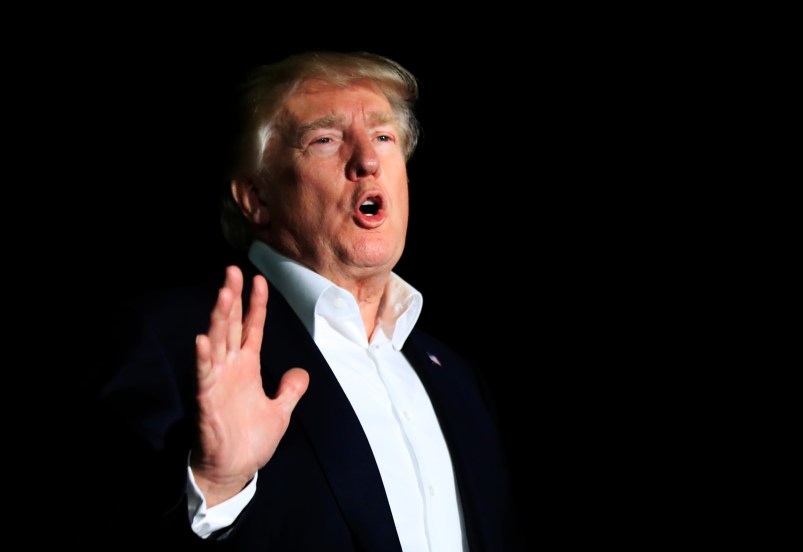The United States has been in a more or less perpetual state of war since the fall of 2001. That’s more than fifteen years. Whether you support or oppose wars in Iraq, Afghanistan and lower intensity conflicts in various other countries, it has left thousands of American men and women dead and far more with longterm injuries. The number of US military deaths is down dramatically from the middle years of the Bush presidency and even from the early years of Obama’s presidency. Military deaths in Afghanistan actually went up dramatically during Obama’s first term as he refocused the country from Iraq to Afghanistan. (According to iCasaulties.org, 1,544 American military personal died in Afghanistan during Obama’s first four years in office. The number to date this year is 11.)
Meetings with families, calls with families, letters to families, visits to military hospitals were a constant feature of both the Bush and Obama presidencies. For both Presidents there was a balance between maintaining the privacy of these contacts while also letting the population at large know that they were happening.
Both men spoke of it as the hardest part of the job of being President. Whatever you think of either man, I don’t doubt that. Regardless of the politics or policy considerations, when a member of the armed services dies in combat, he or she dies because of decisions made ultimately by the President. That’s a heavy burden.
I’ve thought a lot about the mechanics of these communications. Does a bereaved family want to hear from the President on day one or two? It’s a great honor, a recognition of the country’s gratitude. But such a loss is personal, not political or even national. Do you call? Do you send word asking if a call would be welcome? The sheer number of deaths in the middle years of the Iraq War likely made calling every family impossible. I have no idea. This is a topic that requires a vast blanket of discretion. War is political, inevitably. The individual grief of loved ones must be as private as we can keep it.
I don’t know why President Trump failed to take public note of the US military deaths in Niger. What he communicated privately is something I think it would be reasonable to just keep private. The inexplicable failure to publicly note the deaths led to the discussion of any private communication. But President Trump is the one who made the egregious claim that Presidents Obama and Bush never called families to take the spotlight off himself.
Everybody, basically universally, agrees this was a lie. There’s no debate over that.
But I’m not sure that’s even the worst part. To get out of an awkward situation, Trump triggered a partisan fight about one of the most painful, horrible, hallowed part of our national life. People use the word too casually. I’ve used it too casually. But it’s a genuine disgrace. It’s a disgrace.
Now the White House is putting out the word that Obama didn’t call Chief of Staff John Kelly, then a senior Marine General and later Commander of Southern Command. Kelly’s then-29 year old son Robert, a Marine First Lieutenant, was killed in 2010 in Afghanistan. President Trump this morning asked: “As far as other presidents, I don’t know, you could ask Gen. Kelly, did he get a call from Obama? I don’t know what Obama’s policy was.”
An unnamed White House official says Obama did not.
Obama is not talking.
General Kelly isn’t talking.
None of us should be talking.
We shouldn’t be having this conversation at all. There was no need to until now. I don’t know what happened between Kelly and Obama. Almost 500 Americans died in Afghanistan in 2010. I doubt Obama spoke by phone to every single family. We don’t know who wanted to talk and who didn’t. We don’t know enough to litigate these questions and we really have no business doing so. We’ve had the most horribly polarized politics during the Bush and Obama presidencies. Yet none but those on the fringes of the political debate felt the need to go here.
But now we are. And that’s the thing: Donald Trump poisons everything. It’s like an abuser with a captive family; he poisons everything, inflames everything, destroys and degrades anything in his path for his own ends. No one gets out in one piece. He’s poison. He’s just poison. There’s no other way to put it. He hurts the country every moment he’s in office.






